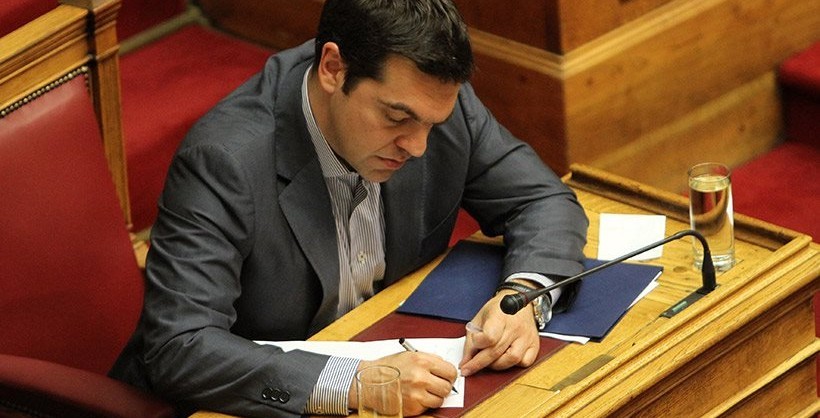Radical Left Coalition (SYRIZA) Prime Minister Alexis Tsipras managed to pass through a third austerity memorandum himself, one that he doesn’t believe in. In the process, he lost his coalition government’s majority with a quarter of SYRIZA MPs dissenting and the rest appearing to vote under duress.
At the end, 229 of the 300 lawmakers supported the tough bailout laws with most of the support coming from the mainstream parties.
32 of the 149 SYRIZA MPs voted against their government, six abstained and another MP was absent. The only difference to this dissent from previous bailout voting sessions was that Tsipras appeared to be in no rush to expel the rebel MPs as had been the case in previous bailouts by socialist PASOK leader George Papandreou and conservative New Democracy leader Antonis Samaras.
Tsipras is biding his time and is in no rush to address the government reshuffle that seems inevitable. Some speculate that it may take place after another round of measures are voted in. Others still, say it will be announced on Friday with the removal of three defecting ministers from the party’s “Left Platform” being inevitable: Productive Reconstruction, Environment Energy Minister Panagiotis Lafazanis, Deputy Social Security Minister Dimitris Stratoulis and Deputy Defense Minister Kostas Isihos.
One of the problems in the political shakeout is the difficulty of replacing Stratoulis. Sources say that lawmakers Alexis Mitropoulos and Savvas Rombolis have already turned down the position, as did Yiannis Kouzis and Dimitris Bourlos. It is speculated that Yiannis Amanatidis who voted ‘yes’ to the bailout measures but from the left faction is being considered for the post as well as Natasha Gara, aged 27, from the border region of Evros.
Deputy Minister Nadia Valavani may be replaced by economist Charalambos Gotsis after she resigned from her position. George Varemenos is the most likely contender to replace Isihos in the Ministry of Defense.
The political shakeup will also include the replacement of Panos Skourletis, who no longer wants to remain in the Labor Ministry, following the change of policy course, as well as Thodoris Dritsas who does not want to be involved in enforcing privatizations following his campaign against these measures.
A huge question mark hangs over the future of Zoe Konstantopoulou, Speaker of Greek Parliament. There is speculation as to whether Alexis Mitropoulos or Nikos Voutsis will replace her.



































